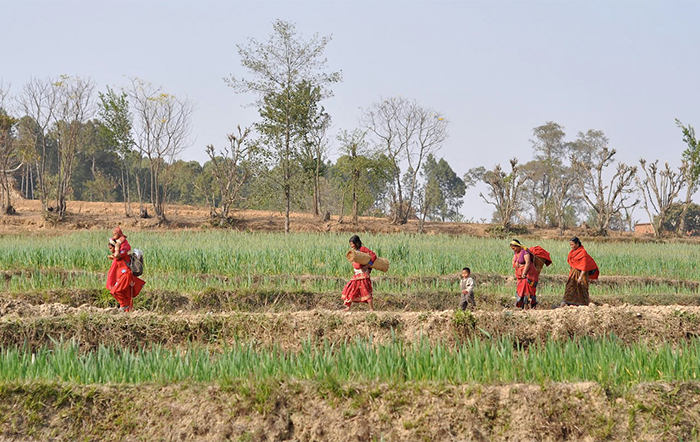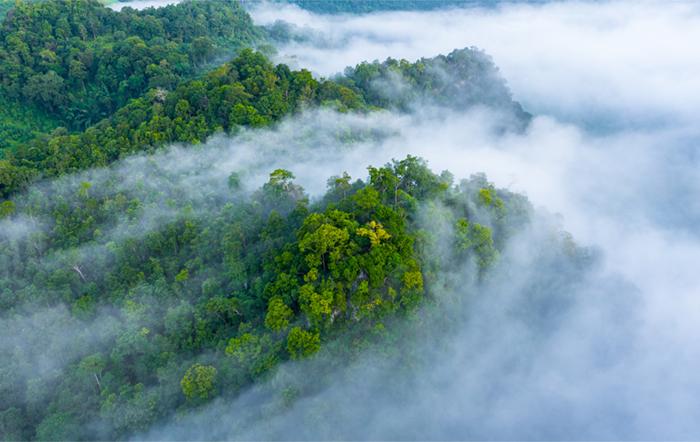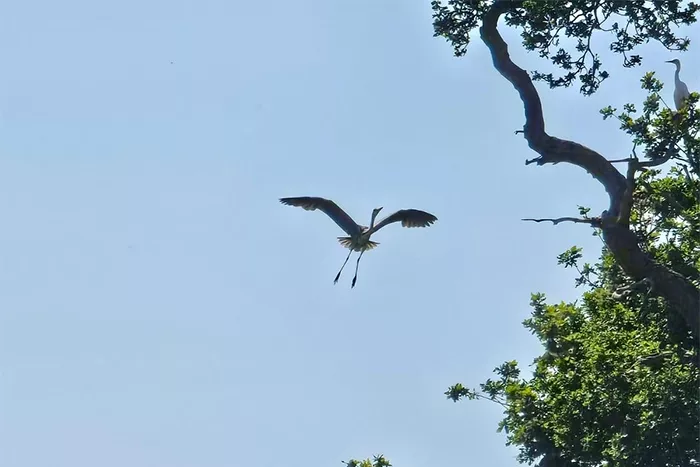Tabina Manzoor, a Kashmiri student, researcher, and environmentalist currently pursuing an MSc in Water Science, Policy, and Management at SoGE, served as a student co-moderator at Oxford’s recently concluded Right Here Right Now Global Climate Summit, where she also gave an opening address at the Sheldonian Theatre.
News
New Study Evaluates the Advancement of Ecology from a 2D to 3D Science
A new study, published this week in BioScience, considers the future of ecology, where technical advancement toward a multidimensional science will continue to fundamentally shift the way we view, explore, and conceptualize the natural world.

UK launches new Oxford-led research centre to accelerate the 'greening' of the global financial system
The UK is putting environmental issues at the heart of global finance with £10 million in backing to create a new Oxford-led research centre which will advise lenders, investors and insurers, enabling them to make better decisions to support a greener global economy.

Why avoiding climate change 'maladaptation' is vital
A new study concludes that many adaptation projects can make people more, rather than less, vulnerable to climate change. Lisa Schipper argues that while adaptation is needed more than ever, it requires better planning, targeting the people who are most in need.

Could the Cumbria coal mine start a net-zero-compliant fossil fuel industry?
While the proposed Woodhouse Colliery in Cumbria appears to be inconsistent with the UK government's 2050 net-zero target, Myles Allen and Nathalie Seddon ask if it could be a flagship project for carbon capture and storage.

Capitalism is Struggling with the Language of Climate Change
The technical terminology of science can sometimes be muddled in powerful climate messages from finance and political leaders, writes Bloomberg. With comment from Ben Caldecott, Director of the Oxford Sustainable Finance Programme.

Severe flood threat caused by climate change - landmark Oxford study
For the first time, researchers have proved human-caused global warming is directly responsible for creating a 'critical threat' of a devastating outburst flood - putting a city of some 120,000 people in the path of potential floodwaters, according to new research from the University of Oxford and the University of Washington, published on 4 Feb in Nature Geoscience.

How dust storms in the world's largest desert form: revelations from a new satellite data set
Hundreds of millions of tons of dust are blown off the Sahara desert each year. This dust interferes with the climate system and is capable of both cooling and heating the atmosphere depending on its height, size, shape and colour. It also interacts with cloud formation and weather systems like tropical cyclones. Being able to represent the location and quantity of dust in models is really important as these are the tools we use to make weather forecasts and climate projections.

Get on your bike: Active transport makes a significant impact on carbon emissions
Cycling, e-biking or walking can help tackle the climate crisis - even if you swap the car for active transport just one day a week - according to a new study led by researchers from the University of Oxford's Transport Studies Unit.

Getting the message right on nature-based solutions to climate change
Nature-based solutions can play a key role in helping to tackle the climate and nature crises, while delivering other benefits for people, according to a new paper today from the Nature-based Solutions Initiative (NbSI) at the University of Oxford - but it is vital to get the message right about how to deliver successful NbS and avoid potential pitfalls.









